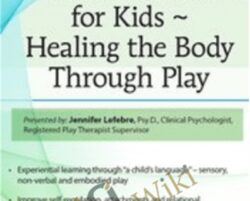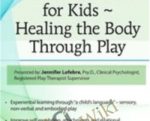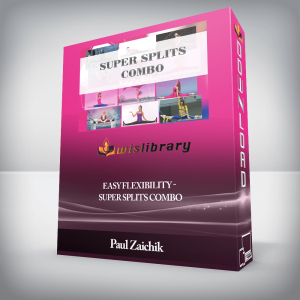Experiential learning through “a child’s language” – sensory, non-verbal and embodied playImprove self-regulation, attachments and relational engagementIncrease the effectiveness of traditional trauma therapiesTransform your work and enhance the capacity for healthy play among the youngest of trauma survivorsTraumatic events damage children emotionally and psychologically.Their trauma stays trapped in their body – they feel overwhelmed, they don’t sleep, they’re anxious, depressed, failing in school, angry and socially isolated.They are completely vulnerable.How do you as a therapist get to the root of their pain? What do you do when words and language can’t be accessed, when conventional treatments aren’t enough?Play is a child’s natural way to expose their trauma, formulate their narrative and begin to process the trauma.Join trauma expert, Dr. Jennifer Lefebre in this experiential, interactive workshop and learn to speak the language of traumatized children!Integrate play therapy with trauma treatment to provide children engaging, developmentally appropriate and empirically validated treatmentUse essential components of trauma treatment flexibly combined with sensory, non-verbal and embodied play to address interest and advance your work with kidsCreative and effective treatment strategies to improve self-regulation, attachments and relational engagement, integrate traumatic experiences and build a sense of competence and worthAccess a clinical framework to incorporate trauma theory, neuroscientific research and play therapy principlesIncrease the capacity for healthy play among the youngest of trauma survivorsArticulate how to help children with complex trauma histories restore their capacity for playfulness and co-regulation.Evaluate the fight-or-flight response in children, and learn playful ways to teach children about the brain-body relationship.Communicate the neurophysiological theory behind developmental trauma and attachment.Contrast diagnostic challenges within this population, and ascertain symptoms of post-traumatic stress disorder which can be decreased through embodied play therapy strategies.Combine embodied play therapy interventions with evidence-based treatment models for improving emotional and behavioral regulation.Pair the core components found within the leading evidence-based trauma treatments (TF-CBT, EMDR, CPP, ARC, TARGET) with play therapy techniques to improve relational engagement.Evaluate which trauma informed treatment components “fit” with specific needs of children who have experienced developmental trauma.Determine how core components of childcentered play therapy align with best practices for treating childhood trauma.Help children heal from trauma through play therapy and evidence-based cognitive strategies.Implement play therapy techniques that are consistent with the core components of trauma-informed treatment.Develop a treatment plan for introducing play therapy to clients and families in an engaging, fun manner.Integrate culturally attuned play therapy strategies into trauma work with children and families.Neuroscience of Childhood Trauma Trauma TheoryFight-or-Flight (parasympathetic/sympathetic nervous system)Attachment TheoryAssessmentComplex TraumaPost-traumatic Stress DisorderReactive Attachment DisorderDevelopmental Trauma DisorderA new conceptualization and integrated clinical frameworkEssential Components for Trauma-Informed TreatmentsEstablishing safety and a sense of competence/worthAppropriate attachments & relational engagementSelf-regulation (body & emotions)Self-reflection & IntrospectionIntegration of traumatic experiences (acknowledgment & processing of the trauma)Future safety ~ transitioning beyond the TraumaBody Based Treatment – Emotional and Behavioral RegulationVerbal vs nonverbal responses – how to recognize trauma without verbal reportBottom-up versus top-down processing – trauma starts in the bodyDevelopmental needs of traumatized childrenEmbodied play & sensory integration – emotional and behavioral regulationIncorporating Play Therapy into Proven Evidence-based TreatmentsComponents that “fit” the child’s specific needsTF-CBT- Trauma focused Cognitive Behavioral TherapyEMDR – Eye Movement Desensitization and ReprocessingCPP – Child Parent PsychotherapyARC – Attachment, Regulation, and CompetencyTARGET – Trauma Adaptive Recovery Group Education TherapyPlay Therapy PrinciplesTherapist establishes a friendly relationshipAccepts the child as he isCreates a permissive relationship; child has freedom of expressionValidates (acknowledge and reflect) child’s feelingsResponsibility for decisions and change is left mostly to the childChild directs the therapeutic process; therapist followsTherapeutic interaction is not rushedLimits are set only when necessary for child’s outcomesAdvancing Trauma Treatment with Play TherapyNon-verbal techniquesSensory-based techniquesCulturally and developmentally appropriate techniquesPlay Therapy Strategies and TechniquesIntegration of traumatic experiences to acknowledge and process the trauma: Sandtrays, drawings, & playTarget shame, self-doubt, and selfcompassion: Sandtray Safeplace & All About MeBuild an understanding of the brainbody relationship: Flip your lid and CharadesTarget indiscriminate attachments and interpersonal reactivity: Invisible String & Family SandtrayImprove emotional and bodily regulation: Stressballs, Be Spaghetti, Feelings Map, Trashballs, Yoga, and Weather MassageTag: Trauma Treatment for Kids – Healing the Body Through Play: Advanced Interactive Workshop – Jennifer Lefebre Review. Trauma Treatment for Kids – Healing the Body Through Play: Advanced Interactive Workshop – Jennifer Lefebre download. Trauma Treatment for Kids – Healing the Body Through Play: Advanced Interactive Workshop – Jennifer Lefebre discount.
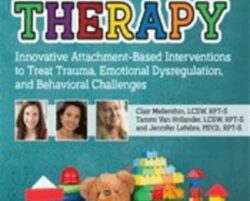 Play Therapy: Innovative Attachment-Based Interventions to Treat Trauma, Emotional Dysregulation, and Behavioral Challenges – Tammi Van Hollander & Jennifer Lefebre
₹25,398.00
Play Therapy: Innovative Attachment-Based Interventions to Treat Trauma, Emotional Dysregulation, and Behavioral Challenges – Tammi Van Hollander & Jennifer Lefebre
₹25,398.00
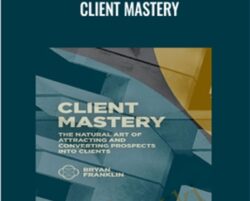 Client Mastery – Bryan Franklin & Jennifer Russell
₹7,470.00
Client Mastery – Bryan Franklin & Jennifer Russell
₹7,470.00
Trauma Treatment for Kids – Healing the Body Through Play: Advanced Interactive Workshop – Jennifer Lefebre
₹19,090.00

